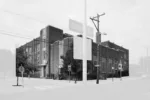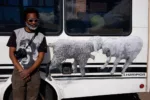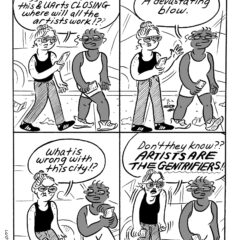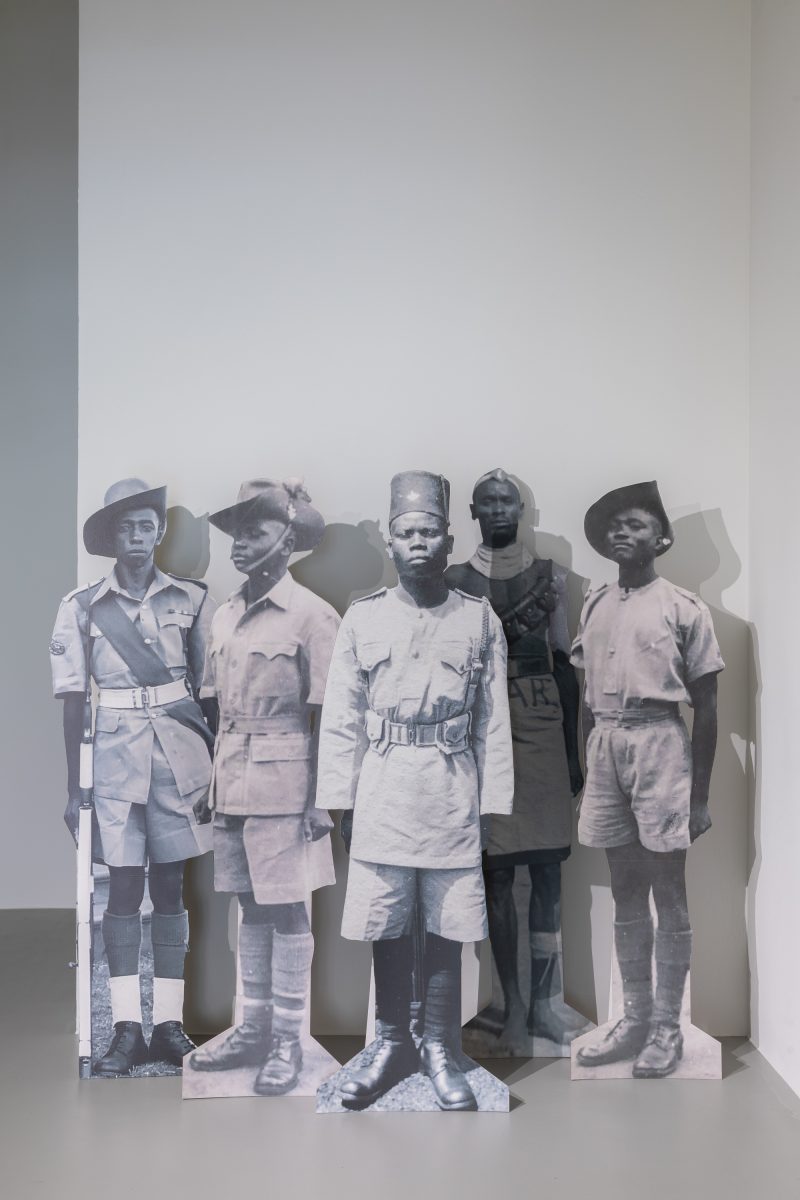
Samson Kambalu Crossing Borders at Rosenwald Wolf Gallery is a spare, haunting show. Small video projections dot the gallery with moody, Buster Keaton-esque short vignettes featuring a Black man (the artist) enacting scenes of ambiguous symbolic actions that are imbued with a touch of the supernatural and a hint of Franz Mesmer as the vignettes repeat in hypnotic loops in a way that suggests history repeating itself. In one video, the artist walks down a sidewalk bordered by a street on one side and a towering, buttressed building that could be a factory or industrial edifice on the other. The man walks purposefully – straight into the buttresses – and passes through them without skipping a beat. The magic of superhero movies is evoked, and also the myth of Sisyphus as the scene recycles; but so, too, the antic charm of Buster Keaton or Charlie Chaplin, the little guys against society in many silent movies. Man versus industry (or capitalism, or imperialism) is a universal motif and here it is beautifully enacted by Kambalu. Other videos conjure the history of slavery in the antebellum South — with a Black man running for his life past the tobacco barn; and a Black man wrestling with chains as white passers by move slowly backwards seeing nothing of his struggle. The videos are excellent and moving.

Inhabiting the space and more haunting even than the videos are life-size, black-and-white photo cutouts of what appear to be African colonial-era soldiers (Beni soldiers), in uniform, standing at attention or in a few cases smiling. A particular group of five, as if posing for a class picture, intimidates as would an equivalent three-dimensional grouping, so fierce and straight, do they look. Conscripts, working for a colonialist regime, their presence in the gallery – “paper doll” witnesses – bespeaks their role in African colonial societies, presumably, cannon fodder in colonial wars fought on their homeland which no longer belongs to them.
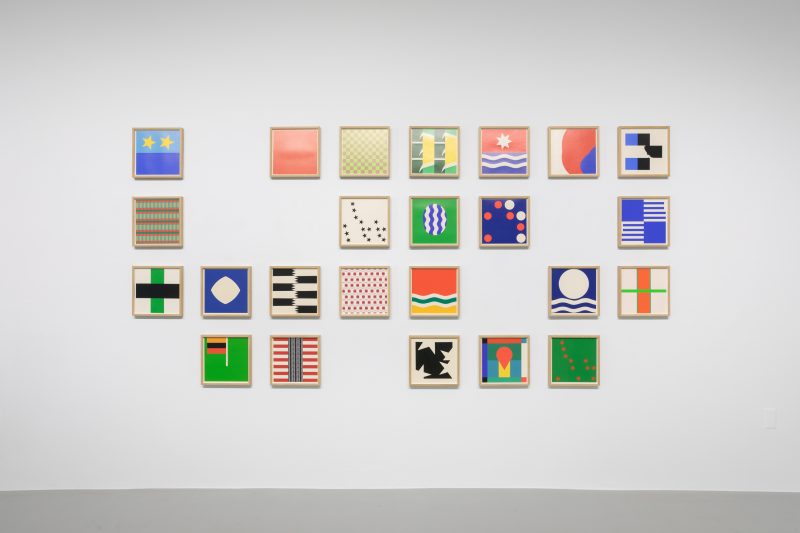
A wall-spanning display of what look like framed miniature African flags adds a layer of color to the show, and additional meaning. The “flag-as-trophy” is especially driven home when the same flags, placed as souvenir postcards on a circular postcard rack, hit you with their meaning about the “buying” and “selling” and commodification of Africa at the hands of non-African nations.
Samson Kambalu was born in Malawi in 1975. Now based in Oxford, Kambalu has shown work throughout the world including in 2015 at the Venice Biennale curated by Okwui Enwezor. Currently, his Fourth Plinth proposal Antelope is up in Trafalgar Square until 2024.
Samson Kambalu Crossing Borders, Sept 14-Dec 2, 2022, Rosenwald-Wolf Gallery, University of the Arts


